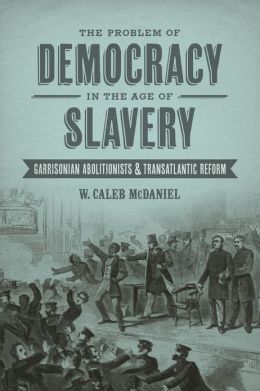Monthly Archives: September 2013
Johnny Appleseed & the American Orchard in Rice University Legendary Americans Course
I was delighted to learn that Caleb McDaniel, Assistant Professor of History at Rice University in Houston, has incorporated Johnny Appleseed and the American Orchard into his Legendary Americans course. Dr. McDaniel is a leader in bringing Digital Humanities methods into both his research and teaching. In his Legendary Americans course McDaniel employs blogging as both a living syllabus and a platform for student writing. Students enrolled in this writing intensive freshman seminar are also reading Francois Furstenberg’s In the Name of the Father, Washington’s Legacy, Slavery, and the Making of a Nation, James Crisp’s Sleuthing the Alamo: Davy Crockett’s Last Stand and Other Mysteries of the Texas Revolution, and Scott Reynolds Nelson’s Steel Drivin’ Man: John Henry, the Untold Story of an American Legend, and readings on Sacajawea, Harriet Tubman, and others. McDaniel uses blogging as a way to guide students through progressively longer and more formal writing exercises.
 McDaniel uses public digital platforms in his own research as well, keeping an open-access wiki of his research in progress. He recently published The Problem of Democracy in the Age of Slavery: Garrisonian Abolitionists and Transatlantic Reform with LSU Press (May 2013), and has begun a new project on emancipation in Texas and the Southwest. McDaniel is a rising star among a new generation of historians who are revolutionizing both teaching and research methods in the profession by embracing the vast potential of the digital world. Check out his Rice University page for informative links to his research and teaching and his “hacks” which provide many valuable tips for increasing academic productivity in a paperless environment.
McDaniel uses public digital platforms in his own research as well, keeping an open-access wiki of his research in progress. He recently published The Problem of Democracy in the Age of Slavery: Garrisonian Abolitionists and Transatlantic Reform with LSU Press (May 2013), and has begun a new project on emancipation in Texas and the Southwest. McDaniel is a rising star among a new generation of historians who are revolutionizing both teaching and research methods in the profession by embracing the vast potential of the digital world. Check out his Rice University page for informative links to his research and teaching and his “hacks” which provide many valuable tips for increasing academic productivity in a paperless environment.
Michael Kammen reviews Johnny Appleseed and the American Orchard

Available in hardcover and paper, as well as Kindle and Nook ebooks.
I was delighted to read Pulitzer prize winning historian Michael Kammen’s just published review of Johnny Appleseed and the American Orchard in the New England Quarterly. Kammen, Professor of History at Cornell University, is the author of nine books, including the Pulitzer winning People of Paradox and his book on the American Constitution, A Machine That Would Go of Itself, which won both the Francis Parkman and Henry Adams prizes. The full review can be found online here, but it is behind a paywall. I have excerpted a small part of it below:
[In Johnny Appleseed and the American Orchard] Kerrigan, the Cole Distinguished Professor of American History at Ohio’s Muskingum University, delivers a succinct, meticulous, and fascinating triple biography of the man, the myth, and the American apple—a fine contribution to cultural and horticultural history. It supplants Johnny Appleseed: Man and Myth (1967) by Robert Price, a volume that got many things right but spread quite a few misperceptions as well. Kerrigan has scavenged through local lore, account ledgers, and receipts to come up with a gently iconoclastic chronicle that changes our image of Johnny from an strict vegetarian who proselytized on behalf of Swedenborgianism, distributing tracts the way he did seedlings, to a more realistic entrepreneur. He lived the life of a primitive Christian, often ragged, but not quite (or not quite consistently) penniless. He bought and sold tracts of land. As a new level of material well-being reached the Ohio Valley during the 1830s and ‘40s, he adapted but did not fundamentally change. Austerity suited him.
Kerrigan deftly illuminates the complexities of land speculation and the claims of land barons and their agents that Chapman faced when he began planting his nurseries in western Pennsylvania in 1796-97. . . [and] also draws attention to the many ways in which trees and apples took on larger symbolic meaning in Chapman’s time.

You must be logged in to post a comment.